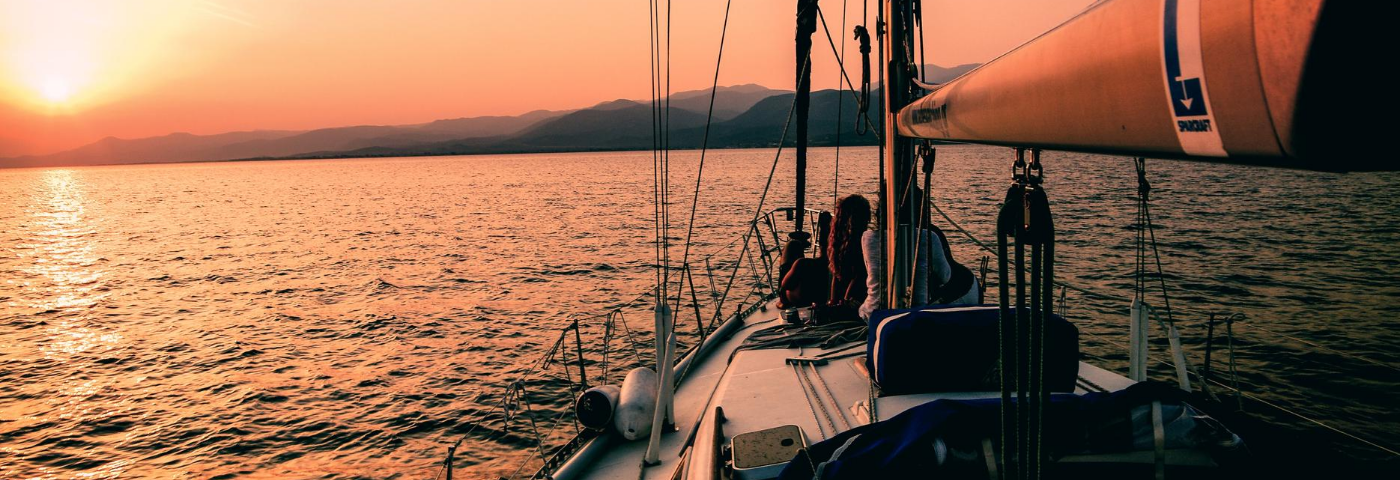This week’s Global Heatmap looks at how COVID-19 has influenced HNW travellers’ budgets and what this means for the luxury travel industry.
A Little Bit About Altiant and the Global Heatmap
ILTM’s Global Heatmap is a new monthly series created by ILTM’s new resident consumer analyst, Meryam Schneider of Altiant. For those who don’t know, Altiant is a fieldwork specialist that empowers insight experts and marketers working within the luxury goods and wealth management industries to gain a deeper understanding of their audience. Each month, Meryam will be drawing insights from a unique HNW sample-set collected through Altiant’s highly-selective proprietary panel, LuxuryOpinions®.
A Change in Values
One of the most revealing aspects of the pandemic so far is how it has shaped HNW individual mindsets around how and where they place budget within the luxury travel market. For the first time in perhaps a long time, it seems that many HNW luxury travellers are questioning their consumption and in some cases moving towards new concepts and options to safeguard both their health and finances. Out of the 580+ sample-set* we looked at it was discovered that the French, American and British HNW individuals were most transformed in this regard, with a near 40% questioning their luxury goods consumption as a result of COVID-19. Interestingly, although there was still a move towards reevaluating budget with Chinese HNW individuals it was at a much lower percentage of 16%.
But how does this translate to specific behaviours within luxury travel? One positive is that once travel is back up and running it may benefit from a reapportioning of luxury budgets away from luxury goods and towards the experiences they feel they have been missing out on:
“Interestingly, having been confined to my home I have found different things to be more important. Luxury goods are not a necessity but I feel travel and experiences are necessities. I want to get back on the road/plane – safe, clean flights and hotels will be more important than carrying a luxury item.”
So where will that spend be headed? Well, it seems to position itself most prominently in three specific areas.
A Move Towards Quality Travel Seclusion
With these shifting perceptions of risk, be it financial or health, comes an increased demand for quality and, often by default, privacy. For example, HNW individuals displayed an increasing intention to place budget with more private options than had been seen prior to the pandemic. For example, 20% were looking to use more private chauffeurs in the future, as well as 17% looking to put budget with private yachts, helicopters or jets:
“More luxury travel and more private travel” – Chinese respondent, 18-39 years
“I will focus on value, quality” – UK respondent, 18-39 years
When it comes to hotels and resorts the overall findings revealed that 38% of HNW travellers plan on spending the same amount as they did pre-COVID-19 on hotels and resorts, whilst 25% will spend more than they did before the outbreak. Furthermore, when questioned on what would make travellers feel safer at a hotel or resort, 43% reported that minimum occupancy would be the crux to securing their comfort.
Again, this suggests that budgets currently are moving towards, if not outright privacy, then as secluded in nature as possible.
Fright or Flight
Flying has, of course, become a key concern for all in the travel industry during this time and it’s no surprise that in this climate HNW individuals too have, in the short term, reconsidered their modes of transport.
Caught between anxiety about health as well as quarantine regulations and financial loss, flying, be it domestic or international has taken one of the hardest hits within the sector and HNW individuals are displaying crucial changes in their intended spend within this area.
As you would expect, private forms of travel are significantly on the rise and this is coupled with a drop in purchase intentions of flying with long-haul flights suffering from this deficit the most. Starkly, 45% of HNW individuals globally reported that they will book fewer long-haul flights for leisure than they did before the crisis, and this was at 38% for short-haul leisure flights. For a third of HNW individuals, however, their budget will remain the same, 39% for short leisure flights and 32% for short business flights.
Overall, however, 36% of HNW individuals reported that they were ‘very likely’ to consider putting spend towards international travel again should restrictions allow. It should be noted that among all the many open comments analysed, the fear of being blocked abroad due to cancellations of flights was often raised together with the inconvenience attached to it. The affluent and HNW individuals will, however, rebound faster than others with a readjustment of budget and a strong appetite to book travel in the right environment. This shift will reinforce the strong need for reassuring messages from agents and brands, using technology and marketing to glamorise these protocols, much like we’ve seen the fashion industry do with couture-branded masks.
A Harder Lean Towards Green
As we touched on in our first article: ‘Green Goes Mainstream’ the tendency towards the sustainable and local has noticeably increased since the start of the crisis. What’s particularly of note however is that this is something that has grown beyond its typical millennial audience and extended to the 40+, primarily female demographic. Most notable in the data is that globally, 35% of people will put more stress on sustainable purchases and 35% on locally sourced goods.
This newfound desire for the sustainable and local is not simply one born of appreciation, but once again one of budget safeguarding:
“I will be much more conscious spending in an effort to prepare for the unknown financially. I have different priorities now” – French respondent, 18-39 years
“Much more likely to stay local” – UK respondent, 40+
This growing trend for local luxury that’s sustainable is a remarkable shift compared to what dominated and defined luxury only months ago. Now, it is the safety-focused sustainable travel that is truly defining the market.
What Does This Mean for the Future of Luxury Travel?
There’s no denying the next few years are going to be interesting for marketers and travel brands of all types. But with the right reassurances in place combined with a short-term redistribution of budgets to safety-focused options, the future of luxury travel is patently one of change, not expiration. This new road to quality, with a focus on the sustainable and intimate, plays well into the sensibilities of many modern luxury brands, but will clearly be more difficult for others. The heartening fact amongst all the data is that no matter where in the world our HNW audience live, the trend towards experiences over objects has been accelerated.
* The sample-set in question comprised of 580+ wealthy consumers from the UK, US, France and China, all of which had a median household income of $404K and investible assets of $911K.


